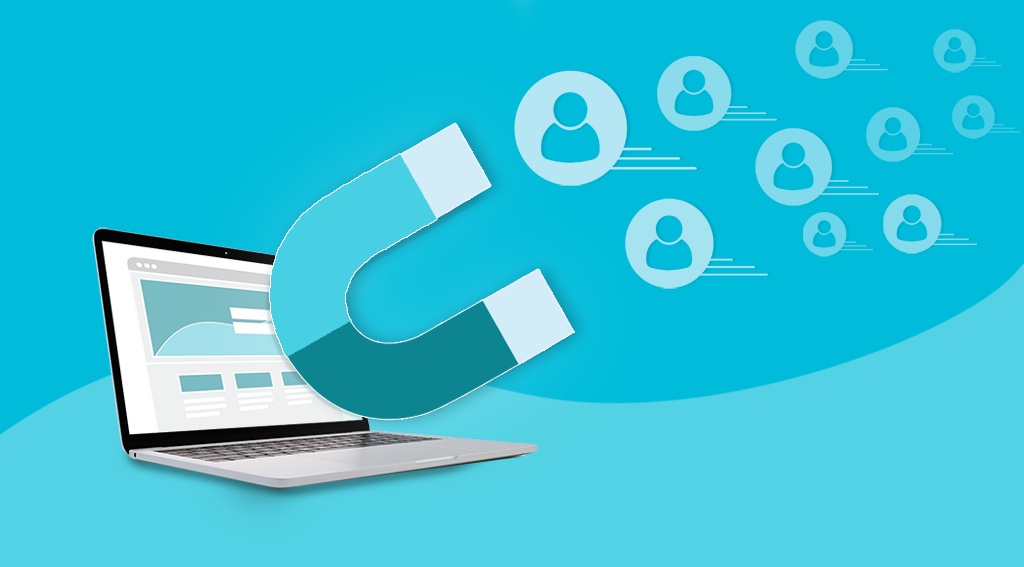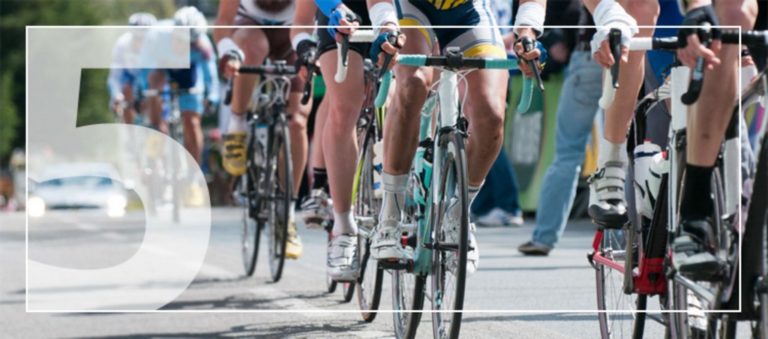Marketing is an integral part of the event planning process. It’s what spreads the word about an upcoming event and generates excitement. It’s also what inspires your target audience to learn more about your event and maybe even purchase tickets.
However, your prospects lead busy lives. You don’t have much time to capture their interest and convince them to buy tickets or register. So what can you do to transform interested individuals into official attendees? Create a well-designed event landing page.
What Is an Event Landing Page?
A landing page is a standalone webpage that’s built to achieve a single goal: convert. Businesses in almost every industry use landing pages to increase sales or generate more leads. In the case of an event landing page, the goal is to turn visitors into attendees by selling them tickets or getting them to register.
Typically, visitors “land” on the page from an online ad (such as one on Google or Facebook), but you can include a link in a promotional email, your social media accounts, or even a page on your website (such as your homepage or a relevant blog post).
A landing page might be part of your website, but it’s different from every other type of page within. Your other pages aim to inform your site visitors about who you are and what you do. They include internal links and navigation menus to encourage exploration. Landing pages, including event landing pages, typically lack these features. They aim to capture your visitors’ attention, provide a convincing pitch, and inspire a specific, immediate action.
What a Dedicated Event Landing Page Can Do for You
A well-designed landing page is a must for event marketers who are promoting all kinds of events. For one thing, it provides everything visitors need to know about an upcoming event and gets them to complete the desired action. It also benefits you. Here are a couple of things a dedicated event page can do for you.
Boost Awareness
In addition to your marketing efforts, an event landing page can help increase awareness of your upcoming event. It does this in a few different ways:
- Funnels traffic and boosts SEO: With a compelling event page, you not only promote your event but also increase your website visitor numbers. That can help improve your ranking in search engine results, which boosts your visibility. SEO strategies such as incorporating keywords and securing high-quality backlinks from other websites can also help.
- Provides valuable insights: When you link an event page to a marketing campaign, you can track and analyze data such as which channels are the most effective. The information allows you to refine your understanding of your target audience. You can make your landing pages and your marketing strategies more effective.
- Enables free word-of-mouth marketing: Solid digital marketing can help you reach pretty far. Those interested in your event can help you spread the word further. Encouraging those who’ve already registered or bought tickets to share your event page on their social media channels can put you in front of prospects your current marketing efforts may have missed.
Collect Email Addresses From Potential Attendees
Another significant benefit of event landing pages is that they allow you to collect your prospective attendees’ email addresses. You can then use those email addresses to engage with the people who provided them. You can then share valuable information such as when registration opens, special ticket offers, and the latest updates.
How to Make an Event Landing Page With a High Conversion Rate
Creating an effective landing page does take a bit of work. Design details, the page layout, and the copy you include all matter. Even something as simple as a color choice or copy placement can impact how well the page achieves its goal. A/B testing can help you zero in on what elements (and placements) produce the best results.
Let’s take a closer look at a few landing page best practices.
Go for a Bold Design
It takes only 50 milliseconds for someone visiting your landing page to form an opinion on it (and, by extension, you). In other words, you have about the amount of time it takes to blink once to capture your visitors’ attention and make a positive impression.
The design and the layout of your landing page are some of the first things visitors will notice. That includes such aspects as images (and their placement), colors, and fonts. Bold choices can help you stand out and grab visitors’ attention.
At the same time, you want to avoid going overboard. Cluttering the page with too many images, too much text, or excessive colors can quickly derail your efforts. An overly full page can be visually overwhelming. Your visitors would be more likely to navigate away from your landing page without doing anything. Keep things simple; include relevant, attention-grabbing images; and don’t be afraid of whitespace. Video content can also be an effective tool for engaging your visitors and increasing conversions because it provides a preview of what potential attendees can expect.
You also want to make sure that your event landing pages are mobile-friendly. According to Backlinko,  99% of social media users access websites or apps via mobile devices. What’s more,  63% of Google’s organic search traffic originates on these devices. Your event landing page (and the rest of your website) should load quickly and look incredible on all internet-connected devices, from desktops to mobile phones.
Provide Key Details About Your Event
As you entice your event page visitors to become attendees, there are some key details you’ll want to sure you include on your landing page:
- Who’s hosting the event: Provide a little background on the host — whether that’s you or a client. Consider including notable speakers, guests, participants, and sponsors.
- What the event is about and what attendees can expect: Written or video testimonials from past event attendees can be helpful (they also showcase social proof!).
- When you’re holding the event: Will it last only one day or span several days?
- Where you’re holding the event: If you don’t know the exact location early on, at least include the city. Once you secure your venue, you can update your landing page.
- Why visitors should attend: What are the benefits of going? What’s your unique value proposition (UVP)? Make sure you communicate this clearly.
Include an Event Registration Form
After putting all of that effort into crafting a compelling landing page that generates excitement, one of the last things you want to do is lose that momentum. Rather than forcing your event landing page visitors to navigate to a separate registration page (which comes with the risk that they don’t follow through), embed the registration form right there on the page.
Be sure to limit your fields to collect only the pertinent information. Lengthy forms may deter potential attendees from completing them. In essence, make the process simple and minimize the number of steps prospective attendees need to take. You’ll maintain their attention and increase the likelihood that they fill out your form.
Include a Call to Action
Of course, the entire point of your event landing page is to get visitors to take a specific action. You can design a gorgeous page, include all of the essential information, and detail your UVP, but it won’t mean anything if you don’t tell visitors what they’re supposed to do next.
All event landing pages need a clear call to action (CTA) that tells visitors exactly what they need to do. Whether that’s preregistering for insider information about your upcoming event, purchasing tickets, or something else, state what you want your prospective attendees to do. A button in a different color that stands out against the rest of the page can help direct attention, too.
Integrate Your Landing Page Into Your Marketing Campaigns
Finally, integrate your event landing page into your marketing campaigns. For instance, if you’re using pay-per-click or social media ads for your upcoming event, make sure those ads take interested individuals to your landing page. You’ll also want to be sure the messaging from the ads and the event landing page is consistent.
You can also incorporate a link to your event landing page in other places where you plan to market your event. For instance, you can add a link to a social media post that talks about your upcoming event, include it in a relevant blog post, or ask your affiliates to share it. You can also include it in your event-related email marketing campaign. As a page that shares essential information about your event and encourages people to attend, your event page should be a key component of your event marketing strategy.Â
Types of Event Landing Pages
There are two main types of event landing pages. The type you choose will depend on your specific goal:
- Event registration/ticket sales: With this type of landing page, your goal is to get visitors to become actual attendees. You can drive sign-ups or reservations for free events and ticket sales for paid events with your page.
- Lead generation: The focus of a lead generation (lead gen) page is to collect contact information from interested prospective attendees. You can use the information to share updates, generate excitement, and let people know when they can register for your event.
Use Event Management Software to Create Your Custom Landing Page
A well-crafted event landing page can be an invaluable tool for generating interest in your events and encouraging interested prospects to sign up or buy tickets. You can build event pages on your own, but the right tools can make a world of difference.
With Events.com’s event management software, you can create custom event pages that move your prospects through the buying process faster. You’ll also have access to data and analytics that can help you understand your audience and the effectiveness of your event pages. The information can help you make adjustments faster for the best results.
Are you ready to convert more prospects into attendees? Visit Events.com today to learn more about our event management software and how we can help you create incredible events your attendees will remember for years to come.







